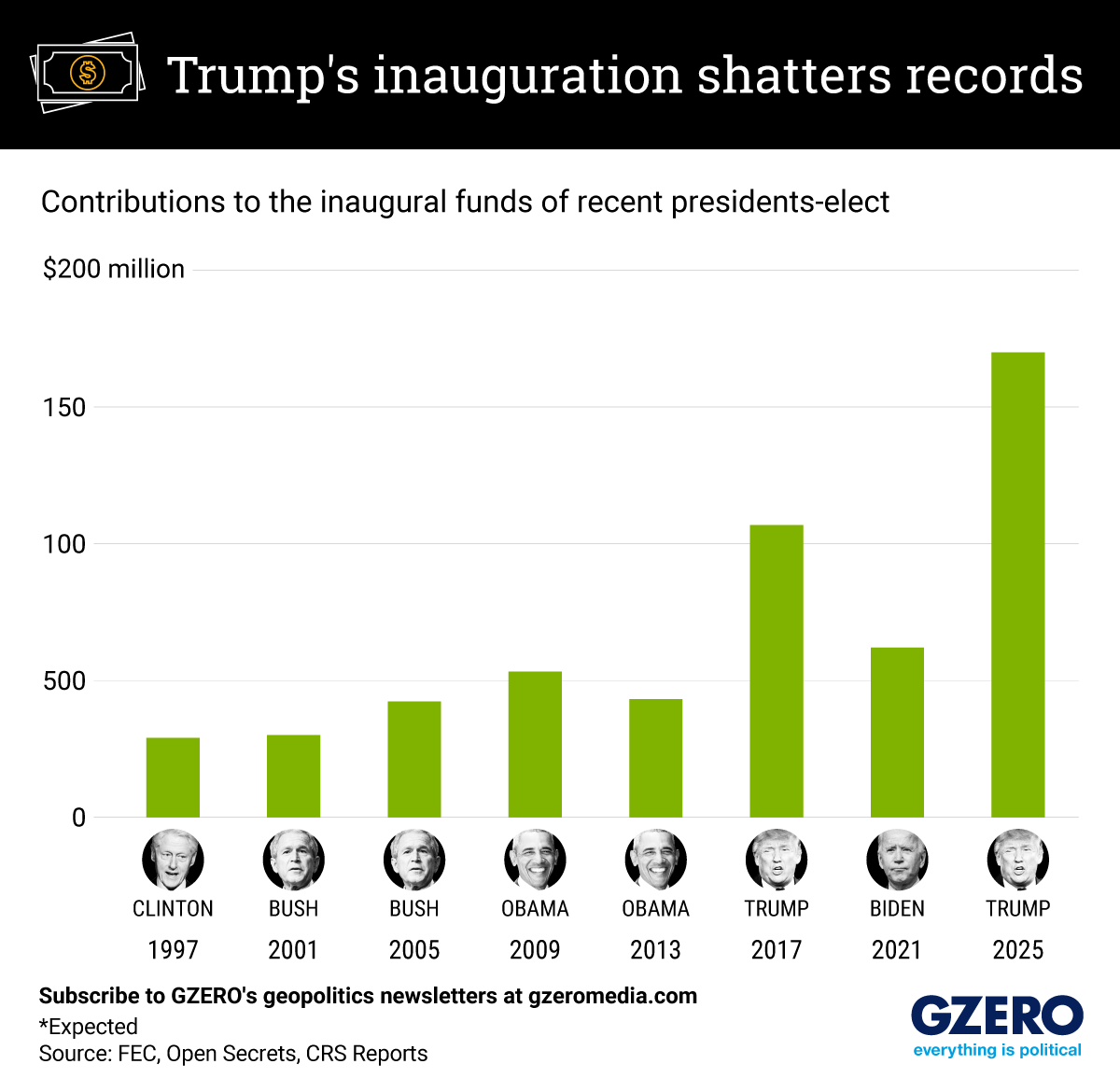Corporate America is showing unprecedented support for Donald Trump’s inauguration, donating record-breaking amounts. Many companies from the tech, fossil fuel, financial services, and automotive industries have doubled their donations since Trump’s first term in 2017.
Not only are companies giving larger amounts than they did for Trump’s first inauguration, but they are also announcing their contributions months before required federal reporting – a contrast from 2017, when many companies tried to distance themselves from the president-elect, or in 2021, when many companies publicly cut ties with Trump following the Jan. 6 insurrection.
Top donating companies include the world's five biggest tech firms like OpenAI and Uber, major auto manufacturers like Toyota, Ford, and GM, healthcare companies like Pfizer, and financial services like Robinhood and Intuit – all of which have each donated at least $1 million. Microsoft doubled its usual contribution to $1 million, while Google more than tripled its previous donations to $1 million as well.
Government watchdogs question how this money will be spent. While the inaugural committee must disclose donors who give more than $200 within 90 days of taking office, there are no restrictions on contribution amounts or requirements to disclose how the money is spent. Trump also has an allied super PAC and a 501(c)4 group accepting donations which do not need to be disclosed. Between the private donations to the inaugural fund and the PACs, Trump is expected to rake in $250 million before taking office.
The logic: Companies don’t give unless they expect to get something in return, and the writing on the wall right now – from the inauguration’s overflowing coffers to dinners costing $250 thousand a plate – is that companies believe they can, or need to, pay up if they want to influence or enjoy favorable policies under the incoming administration.